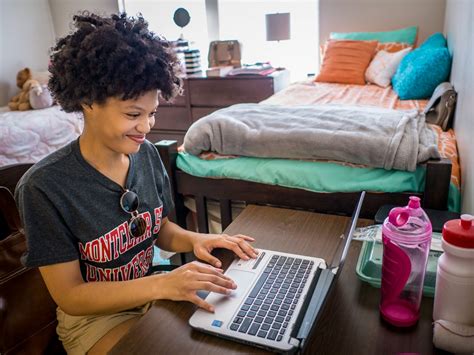Introduction

Montclair University is renowned for its academic excellence and vibrant student life. Finding suitable housing is crucial for ensuring a successful university experience. This comprehensive guide will provide valuable insights into the various housing options available at Montclair University.
On-Campus Housing
Residence Halls
Montclair University offers several on-campus Residence Halls that provide a convenient and immersive living experience. These halls offer a range of room types, including singles, doubles, triples, and quads. Some halls are air-conditioned, while others are not.
Traditional Residence Halls:
- Dickson Hall: Capacity of 336 students
- Freeman Hall: Capacity of 334 students
- Hawk Crossings: Capacity of 314 students
- Morehead Hall: Capacity of 230 students
- Richardson Hall: Capacity of 272 students
Apartment-Style Residence Halls:
- The Heights: Capacity of 1,012 students
- University Crossings: Capacity of 626 students
Themed Housing
Montclair University offers Themed Housing communities to cater to students with specific interests or identities.
- Arts Village: Designed for students interested in the arts, with studios and practice spaces available.
- Business Village: Provides a supportive environment for business students, with access to computer labs and mentorship opportunities.
- Honors Village: Features a living and learning community for high-achieving honors students.
- International House: Fosters cultural exchange and global awareness among students from diverse backgrounds.
Off-Campus Housing
Apartments and Houses
Students may also choose to live off-campus in apartments or houses rented from private landlords. This option offers more independence and privacy but requires additional responsibility for utilities, maintenance, and transportation.
Popular Off-Campus Neighborhoods:
- Glen Ridge
- Bloomfield
- Clifton
- Nutley
- Verona
Considerations for Off-Campus Housing:
- Proximity to campus and public transportation
- Safety of the neighborhood
- Size and amenities of the unit
- Cost of rent and Utilities
Housing Costs
Housing Costs at Montclair University vary depending on the type of housing chosen.
On-Campus Housing:
- Traditional Residence Halls: $11,680 – $14,370 per year
- Apartment-Style Residence Halls: $14,022 – $18,382 per year
Off-Campus Housing:
- Apartments: $1,000 – $2,000 per month
- Houses: $2,000 – $4,000 per month
Financial Assistance
Students who face financial challenges may qualify for Financial Assistance with their housing expenses.
- Montclair University Housing Scholarships: Available to students with demonstrated financial need and academic merit.
- Federal Pell Grants: Grants awarded to low-income students to cover educational costs, including housing.
- Federal Supplemental Educational Opportunity Grants (SEOG): Grants based on financial need that can be used for expenses such as housing and textbooks.
Tips and Tricks
- Start your search early: Housing options fill up quickly, so it’s important to secure your spot as soon as possible.
- Consider your needs and preferences: Think about what type of housing, amenities, and location are most important to you.
- Tour different options: Visit the residence halls and off-campus apartments to get a firsthand look at the living spaces.
- Compare costs carefully: Factor in not only the rent but also utilities, transportation, and other expenses.
- Read the lease thoroughly: Understand the terms and conditions of your housing contract before signing.
- Get a roommate: Sharing an apartment or house can significantly reduce housing costs.
- Explore Off-Campus Housing options: Private landlords offer a variety of apartments and houses that may meet your specific needs.
Common Mistakes to Avoid
- Waiting too long to start your search: Don’t wait until the last minute to secure housing, or you may end up with limited options or higher costs.
- Ignoring your budget: Overestimating your financial capabilities can lead to financial stress and housing insecurity.
- Not considering your commute: Choose housing that is conveniently located or close to public transportation to avoid excessive travel time.
- Signing a lease without understanding it: Make sure you understand the terms of your lease, including the length of the commitment, security deposit, and rent increases.
- Renting an unsafe property: Prioritize safety when choosing off-campus housing by checking the crime rate in the neighborhood and inspecting the property for any potential hazards.
Conclusion
Finding the right housing is essential for success at Montclair University. Whether you choose to live on- or off-campus, it is important to carefully consider your needs, preferences, and financial situation. By following the tips and avoiding the common mistakes outlined in this guide, you can secure comfortable and affordable housing that will enhance your university experience.
Additional Resources
- Montclair University Housing and Residential Life
- Off-Campus Housing Search
- Financial Aid at Montclair University
